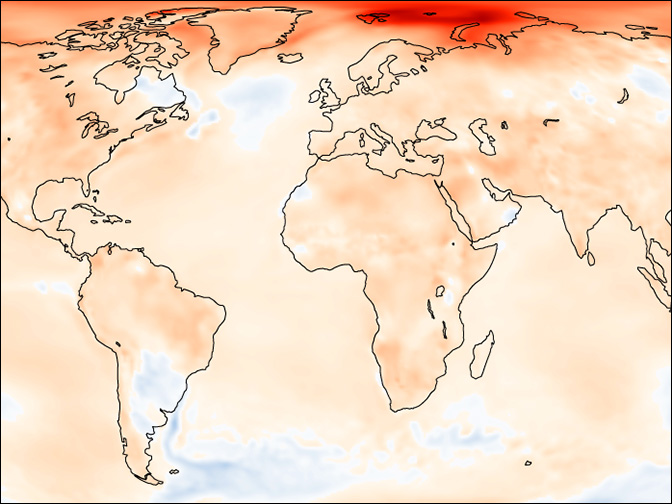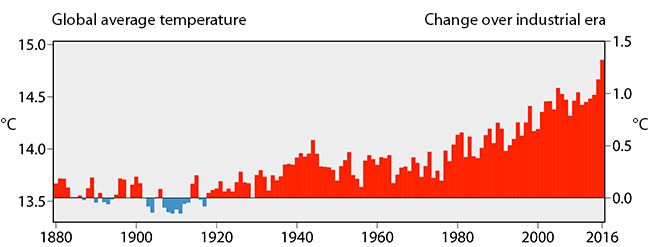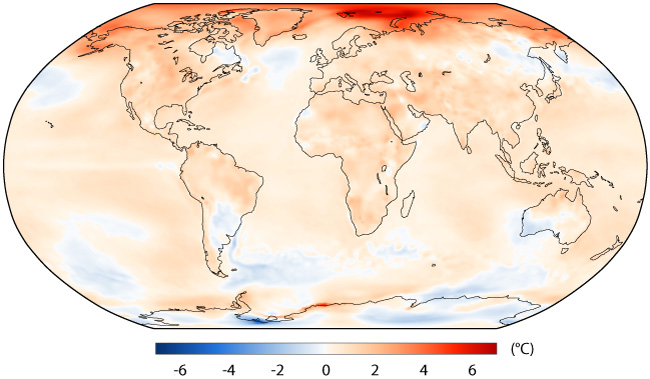

2016 was the warmest year on record with global surface air temperatures about 1.3°C above pre-industrial levels, according to the Copernicus Climate Change Service (C3S) run by ECMWF on behalf of the EU.
The data show that 2016 was nearly 0.2°C warmer than the previous warmest year, 2015.
On average, global temperatures were about 1.3°C higher than was typical for the middle years of the 18th century, with a peak of about 1.5°C reached in February 2016.
In 2015 countries agreed in Paris to pursue efforts to limit the temperature increase to 1.5°C above pre-industrial levels.
As explained on the C3S website, the February peak was reached under the influence of a strong El Niño, an intermittent event involving a period of warming.
However, global temperatures remained well above average in the second half of 2016, which was marked by exceptionally low sea-ice cover in both the Arctic and Antarctic.

Annual global air temperature at a height of two metres (left-hand axis) and estimated change from the middle of the 18th century (right-hand axis). In 2016 the mean temperature was about 1.3°C higher than at the start of the industrial era. Sources: Copernicus Climate Change Service, ECMWF, for data from 1979; the UK Met Office Hadley Centre, NASA and NOAA for blended data prior to 1979.
C3S also found that most regions around the world experienced above-average temperatures during 2016. The largest differences in regional average temperatures were found in the Arctic, but conditions were also extreme over southern Africa early in the year, over southern and south-eastern Asia prior to the summer monsoon, over the Middle East later in summer, and over parts of North America in summer and autumn.

Air temperature at a height of two metres for 2016, shown relative to its 1981-2010 average. Source: Copernicus Climate Change Service, ECMWF.
Director of ECMWF’s Copernicus Services Juan Garcés de Marcilla said: “The future impact of climate change will depend on the effort we make now, in part achieved by better sharing of climate knowledge and information. To help decision-makers develop effective adaptation and mitigation solutions we make the data from the Copernicus Climate Change Service (C3S) and the Copernicus Atmosphere Monitoring Service (CAMS) freely and openly available. By mainstreaming the information that the Copernicus Services hold into climate policy and strategy, governments, the private sector and society can identify and unite around opportunities to tackle further climate change and reduce vulnerability where its effects are unavoidable.”
Further information
- More details, including on the spread in annual global temperature variations between different datasets, can be found in the C3S press release.
- A recent article in the Quarterly Journal of the Royal Meteorological Society includes a fuller discussion of the use of climate reanalysis as a source of information on global warming.
